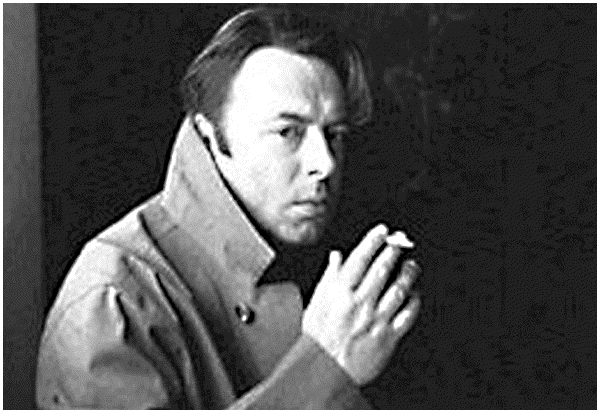Christopher Hitchens
(Twelve)

There was a reason for Hitchens' unease. The old curmudgeon had been waterboarded before. No, it wasn't under direct orders from Dick Cheney. On his own, Hitchens had tracked down some experienced professionals, presumably fresh from the back rooms at Guantánamo, so he could experience the process directly. He wanted to report to readers of Vanity Fair just what waterboarding felt like, whether it was a legitimate tool to use against these presumed Enemies of the Republic.
-
What happens, you may have been told, is a 'simulation' of the sensation of drowning. Wrong. What happens is that you are slowly but inexorably drowned. And if at any point you manage to evade the deadly drip of water, your torturer will know. He or she will then make a minute but effective adjustment.
In the hospital, in his last days, Hitchens got to experience waterboarding again, albeit of a slightly different form. This was the exquisitely deadly drip of dying over eighteen months "with the banal, quotidian hospital and medical practices that remind people of state-sponsored torture." Mortality is a journal of his final days of torture.
Hitchens had come down with cancer of the esophagas, lymph nodes, and lungs, and here we find him looking at the cancer and his pending death with a practiced, critical eye, managing all the while to win our hearts with his lack of honeyed sentiment, avoiding the usual soppiness that most of us call up when we or those close to us are dying.
The book takes us on the journey from June of 2010 (when Hitchens was diagnosed) to December of 2011 (when he died). What a beautiful, awful journey it was. Samuel Johnson said that "The prospect of being hanged focuses the mind wonderfully." Hitchens was not being hanged, unless you mean that metaphorically, but his literate mind stayed focused and articulate. He goes into the rich detail of his body becoming a "reservoir of pain," meditates on the old wheeze that pain makes us better people, offers thoughts on whether the phrase "the war on cancer" is appropriate, and reveals that near the end he became a willing morphine junky: "How happily I measured off my day as I saw the injection being readied."
Did those 18 months turn Hitchens into some kind of a hero? "I love the imagery of struggle," he tells us. But "when you sit in a room with a set of other finalists, and kindly people bring in a huge transparent bag of poison and plug it into your arm, and you either read or don't read a book while the venom sack gradually empties itself into you system, the image of the ardent soldier or revolutionary is the very last one that will occur to you. You feel swamped with passivity and impotence: dissolving in powerlessness like a sugar lump in water."
In less than 100 words, he not only is able to defuse the fake heroic image ("battling cancer") but manages to leave us with a delicate and elegant irony: "kindly people" delivering "a huge transparent bag of poison...a venom sack."
The volume is encapsulated by two contributions from those who may have known Hitchens best: his wife, Carol Blue, and his old editor, Graydon Carter. Blue's words are charming and wry and sad, telling of a man who was probably --- I am guessing now --- a pain to know intimately and to live with and to love. Despite this, her obituary is graced with a generosity, even a sense of fun, which is more than touching.
Then there is Carter. His words seem more pro forma, include a sentence that a good editor would have strangled in the crib. "Christopher," he tells us, "was not just brave in facing the illness that took him but brave in word and thought." I am wondering if he read Mortality before he dug up this old wheeze-bag. Right there in Hitchen's last chapter we find the elegant and direct statement: "Brave? Hah! Save it for a fight you can't run away from."
In college, one of my best teachers, Dr. Quinn, had us read Harry Levin's great study The Question of Hamlet. Levin emphasizes the game element of Hamlet --- for it is a game, although a deadly one, taking place there in the palace. But it was also, Levin insisted, wasteful. That such a person as the good prince should be forced to set a state's disorder back to rights; and that he should have to die in the process of so doing.
I thought of this waste as I was getting to the end of Mortality. Many of us fans had felt that Hitchens was sent here by the gods to try to help piece our disordered world back together again. Even when he came up with some of his weirdest theories, such as supporting the initial entry into Iraq, we excused him because he was being pure Hitchens. We never contemplated that he would leave us behind before things had come to be set to rights again.